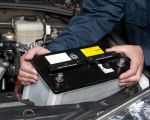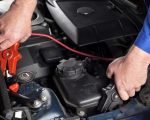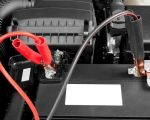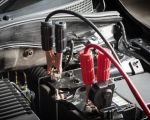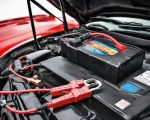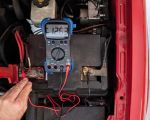Can You Jumpstart a Car with a Charger?
When my car battery died unexpectedly last winter, I found myself in a situation that many drivers face: stranded, frustrated, and unsure of what to do. I had no jumper cables and no one around to help with a jump start. I started wondering, "Can I jumpstart my car using a charger instead?" This thought led me down a path of discovery that I’m eager to share with you. In this article, I’ll explain whether a car charger can jumpstart a car, how it works, and the best ways to get your vehicle running again if you ever find yourself in a similar situation.
1. Understanding Car Batteries and Chargers
Before diving into whether you can jumpstart a car with a charger, it’s important to understand how both car batteries and chargers work. Car batteries are designed to provide the power needed to start the engine. When the engine is running, the alternator generates electricity to keep the battery charged and to power the car’s electrical systems. However, if the battery is weak or dead, the car won’t start.
A charger, on the other hand, is a device used to restore charge to a dead or dying battery. It uses electrical energy to recharge the battery by passing a controlled amount of power through the battery terminals. But while a charger is meant to charge a battery over time, it’s not always the right tool to jumpstart a car. The key difference is the amount of power needed for a jumpstart versus a standard recharge.
2. Can a Car Charger Jumpstart a Car?
The short answer is: it depends. While some advanced chargers can provide enough power to start a car, most standard car chargers are not designed for jumpstarting. Car jumpstarting typically requires a large burst of power to get the engine turning over. In contrast, a charger works more slowly to restore battery power. For this reason, using a standard car charger to jumpstart a car is not advisable in most situations. However, there are some chargers designed specifically for jumpstarting that can provide the necessary power to start your vehicle.
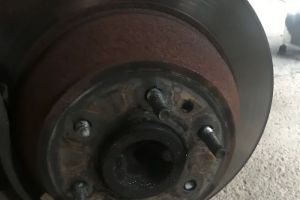
Beckwith's Automotive Services Center
2450 N Ridge Rd, Painesville, OH 44077, USA
2.1 Using a Battery Charger with Jumpstart Capability
In my search for solutions, I came across portable battery chargers with jumpstart capabilities. These devices are powerful enough to give your car’s battery a quick boost. Typically, these chargers are designed with a higher output capacity, sometimes ranging from 12V to 24V, depending on the vehicle’s requirements. They function similarly to a traditional jumpstart using jumper cables but are more convenient because they don’t require a second vehicle. I’ve personally used a portable jumpstarter a few times, and it works wonders. It's a compact device that’s easy to store in your trunk and can save you a lot of trouble when you're stuck with a dead battery.

bp
200 S Oyster Bay Rd, Syosset, NY 11791, USA
2.2 Regular Car Chargers vs. Jump Starter Chargers
Standard car chargers are generally designed to charge a battery over an extended period—sometimes hours or even overnight. These chargers work fine when you have the luxury of time, such as when you’re planning to recharge the battery for future use. On the other hand, a jumpstarter charger (also called a jump pack) can give you a surge of power almost instantly, which is essential for starting a car. If you try to use a regular charger for a jumpstart, it will likely take too long and not provide the instant power required to turn over the engine.
3. How to Use a Charger to Jumpstart a Car
If you have a jumpstarter charger, the process of jumpstarting your car is relatively straightforward. Let me walk you through the steps:
3.1 Prepare the Jumpstarter Charger
Before you begin, make sure the jumpstarter charger is fully charged. Many portable jumpstarter chargers come with indicator lights or displays that tell you the charge level. Ensure it’s at least 75% charged to ensure a successful jumpstart.
3.2 Connect the Charger to Your Battery
Attach the positive (red) clamp to the positive terminal of your car battery and the negative (black) clamp to the negative terminal. These connections need to be secure for the charger to deliver the proper power. If you’re unsure about the connections, I recommend consulting your car’s manual for specific instructions.
3.3 Turn on the Jumpstarter Charger
Once everything is connected, turn on the jumpstarter charger. This will provide your car battery with a burst of power. In my experience, most jumpstarter chargers take just a few minutes to provide enough power to start the engine. After a few moments, try starting your car. If the car doesn’t start, wait a little longer before trying again. You may need to let the charger work for several minutes before the battery has enough power to start the engine.
3.4 Start the Car
Once the jumpstarter charger has provided enough power, attempt to start your car. If it starts, keep it running for at least 15-20 minutes to allow the alternator to charge the battery fully. This is important because a jumpstart only temporarily boosts the battery’s power, and it’s the alternator that will keep the battery charged moving forward.
4. Common Mistakes to Avoid When Using a Jumpstarter Charger
In my experience, using a jumpstarter charger can be a life-saver, but there are a few mistakes to avoid to ensure you don’t damage your battery or charger:
4.1 Not Checking the Charge Level of the Charger
It’s easy to assume that your charger is fully charged, but I’ve learned the hard way that you should always check the charge level before trying to jumpstart. If the charger is underpowered, it won’t work as effectively, and you could be wasting time. Always make sure the jumpstarter charger is adequately charged before using it.
4.2 Incorrect Clamp Connections
Make sure you attach the positive (red) clamp to the positive terminal and the negative (black) clamp to the negative terminal. If these clamps are connected incorrectly, it could cause sparks or even damage the battery. I always double-check the connections to ensure everything is right before powering on the charger.
4.3 Not Letting the Car Run Long Enough
Once the car starts, I used to assume it would be good to go immediately. However, it's crucial to let the car run for a while so the alternator can charge the battery. If you don’t allow this, you risk the car stalling again shortly after you start it.
5. When to Call for Help
While a jumpstarter charger is an excellent tool, there are times when you might need professional help. If your car won’t start despite using a charger, it could mean your battery is beyond repair or that there’s a deeper electrical issue. In these cases, I recommend calling for professional assistance.
Having been stuck in similar situations before, I’ve relied on companies like Rescue & Towing to help me when I’ve been unable to get my car started. They provide expert assistance and can safely handle any problems with your battery or electrical system. If you’re unsure whether the problem is with your battery or something else, a quick call to a professional can save you time and frustration.
For reliable, fast service, I recommend visiting Rescue & Towing for roadside assistance and more.
6. Conclusion
So, yes, you can jumpstart a car with a charger, but only if you have the right type of charger designed for that purpose. While a regular car charger won’t work for jumpstarting, a portable jumpstarter charger can save the day with just a few simple steps. Always make sure your charger is fully charged, your connections are correct, and your car runs long enough to recharge the battery. And if you’re ever in doubt, don’t hesitate to call for professional help.














